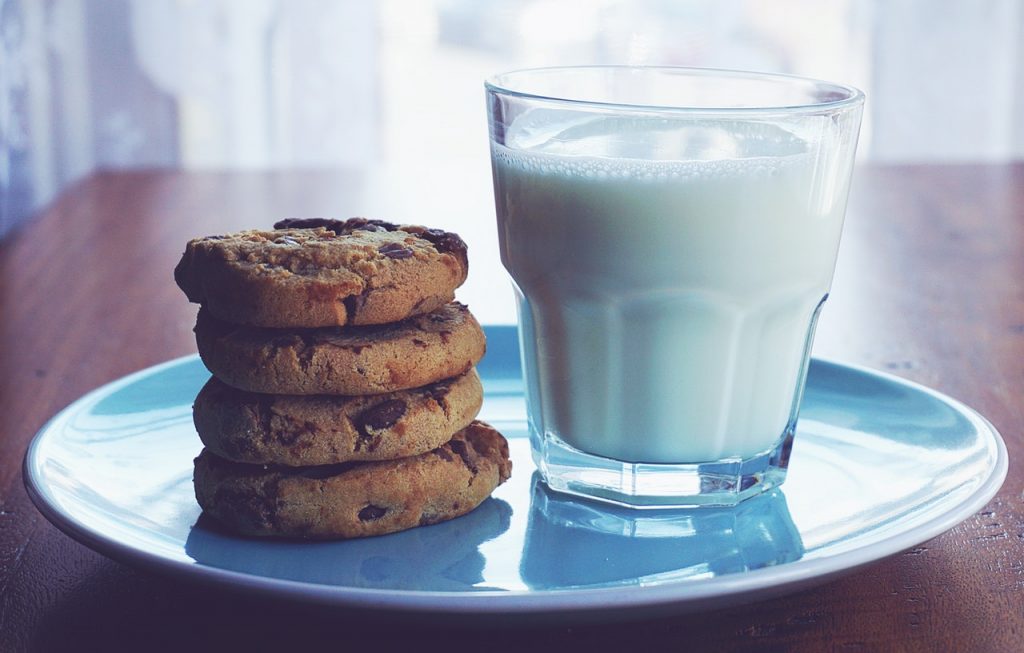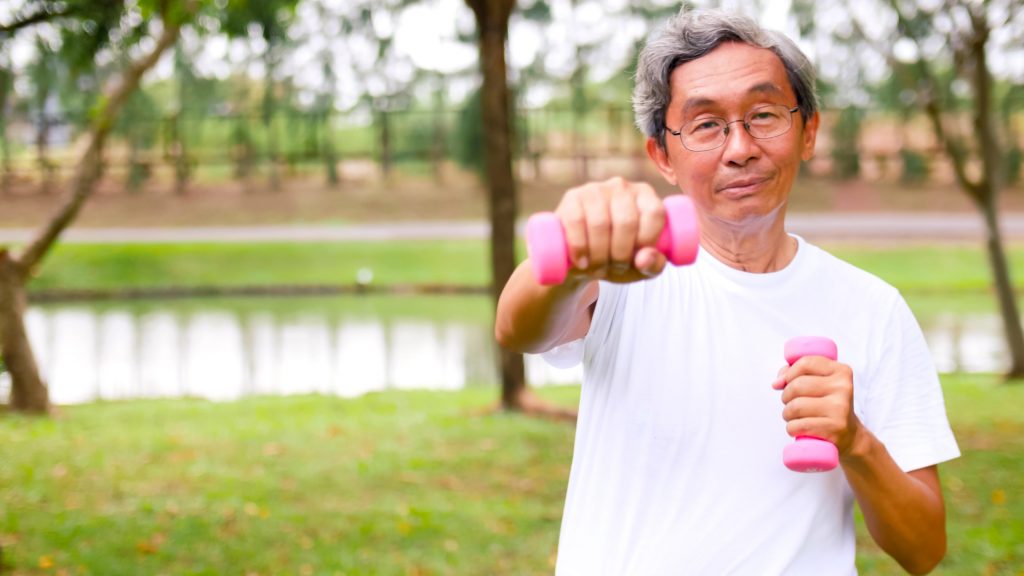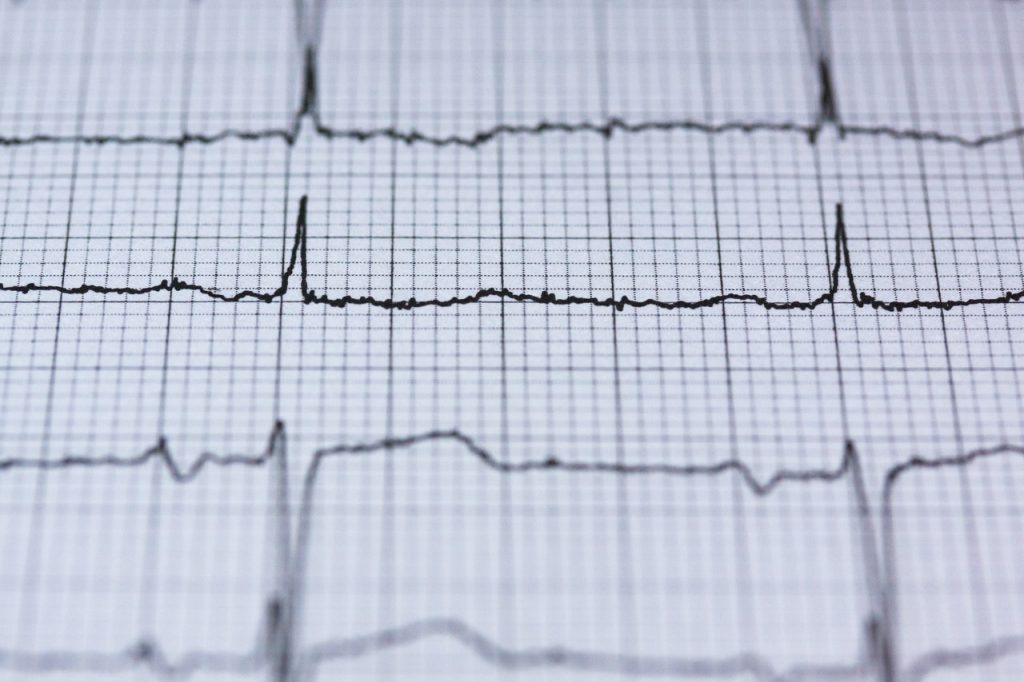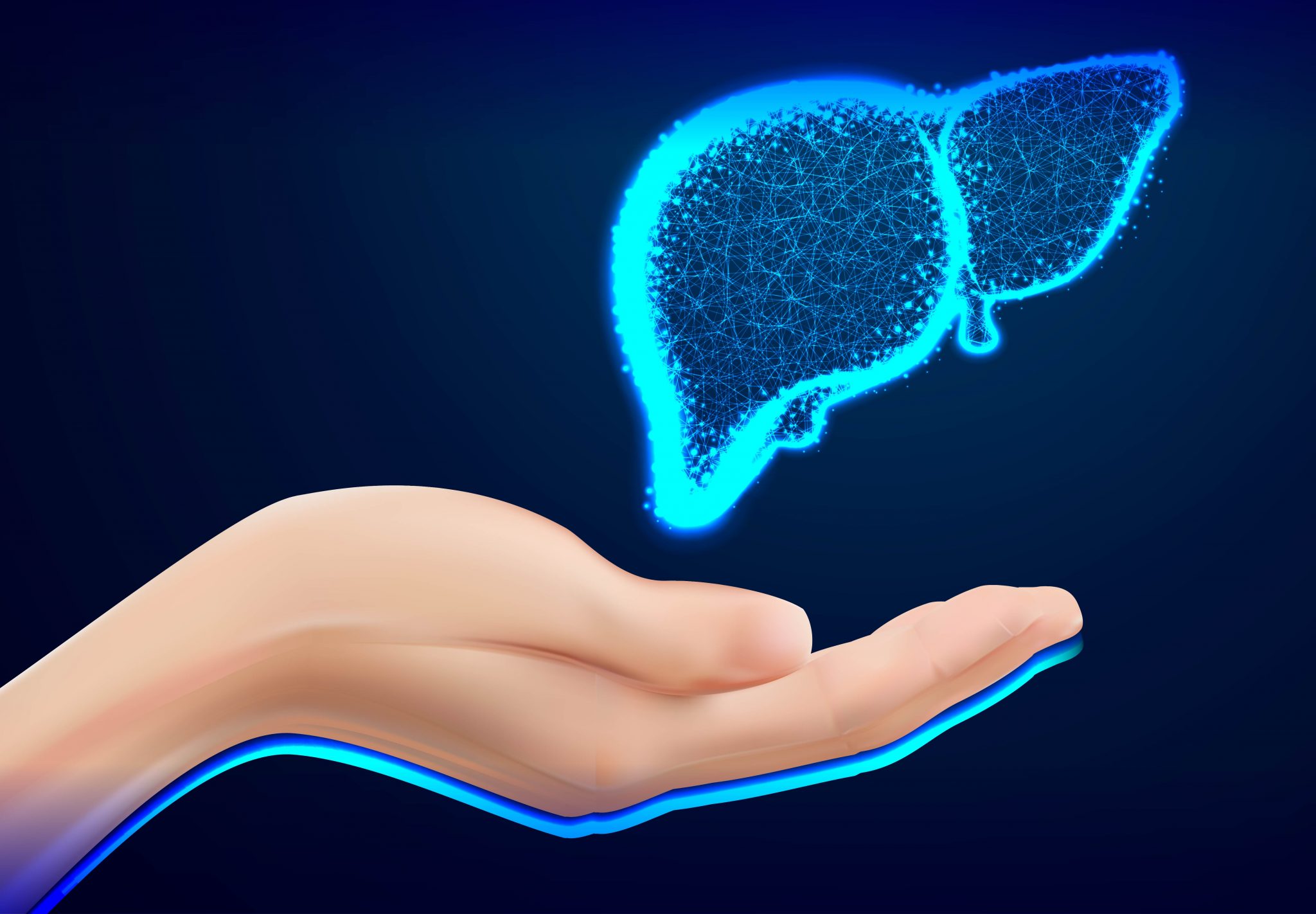
The human body is an amazing piece of machinery capable of achieving many feats. Throughout the course of our lives, it adapts and improves to suit our demands. Yet as we grow older, this capability to persevere diminishes. This is the phase of aging which our once-powerful super-dads will now experience.
Along with this comes diseases staved away for so long by their younger bodies which we would never have noticed1,2. Now, it is our turn to learn and understand how to keep them functioning better to a more blissful life.
Bones of Steel

The strength of our bones is often overlooked. It is stronger yet lighter than steel. Did you know that broken bones heal stronger and thicker than normal? Keeping us standing tall throughout our lives, our bones begin to age just as we do.
A common side-effect of aging is osteopenia, the loss of bone mass. It loses its density and its strength as we age3. This increases the risk of osteoporosis and osteoarthritis development.
Fret not, as this condition is highly manageable and can be slowed with this few tips;
- Consume vitamin D and calcium supplements
- Increase dairy intake
- Implement medium intensity exercises such as football and badminton
These simple tips should be practiced by both you and your parents as prevention is better than cure. An early start will definitely slow and maybe delay the onset of bone loss.
Raw Muscle

Our fondest young memories of our dads are them carrying us easily over their heads. As we grow old, boys and girls aspire to be as strong as their dad. But soon we realize even our dads start to struggle with their losing strength.
Another common side-effect of aging is sarcopenia, the loss of muscle mass, and with it the loss of its strength, adaptability, and size. This affects everyone differently as we have different demands of our muscles in our daily life.
Muscle loss is not inevitable, there are various ways to not only avoid sarcopenia but to help our super-dads get stronger as they age.
- Implement weight exercises
- Increase protein consumption
- Improve sleep quality and duration
- Increase vitamin D intake
- Lower, but do not cut carbohydrates
Muscles are a “use it or lose it” component of our body. Multiple research has proven that physically active individuals tend to retain their muscle mass and function as they age.
So, take your dad with you to the gym and pump those muscles!
Racing Hearts

Our hearts reach a milestone of about 2 billion beats by the age of 70. The engine of our body self maintains while working efficiently to keep us alive. Yet, even this remarkably persistent heart starts to wear out as we age.
Heart disease prevalence increases drastically in elder individuals. A few of the common heart problems faced by the elderly are abnormal heart rhythm, clogged arteries, and heart failure.
These tips can definitely help prolong and improve the functioning of the heart;
- Increase unsaturated fats and HDL (good) cholesterol intake
- Reduce saturated fats and LDL (bad) cholesterol intake
- Increase low and medium intensity exercises such as jogging and swimming
- Increase dietary fiber intake
- Consume berries rich in antioxidants
One Smart Cookie

The saying “wisdom comes with age” cannot be more accurate when it comes to the knowledge passed down to us from our parents. That capability to horde and pass down knowledge owes its gratitude to the magnificent performance of their brain.
Yet, even the brain like any other organ can undergo performance loss with age. Soon, cognitive abilities such as memory, problem-solving, motor controls, and more become harder to access by our parents.
These are a few tips to help your dad stay sharp as always;
- Increase mental exercises with board games and puzzles
- Increase sleep quality and quantity
- Implement relaxation sessions
- Increase healthy food intake
- Increase physical exercise
Turn That Frown Upside Down

One often-overlooked factor of our parent’s lives is their psychological and emotional state. When we grow up, we looked up to our dads as the unshakeable pillar of strength persevering through the hardships of life while making it seem effortless. The one thing we do not expect to befall on our super-dad is loneliness.
Our parents try their best to help us grow into the best version of ourselves and this inevitably takes us away from our nest. The distance from their children and the dawn of age places enormous stress on the psyche of our parents. Unmanaged, this can lead to the development of several psychological problems such as depression, dementia, and more4.
There are many ways to help them stay young and happy including;
- Increase quality time spent with them
- Take them on vacations together
- Implement relaxation sessions such as weekly massage therapy
- Set up social sessions between their friends
It is time to prioritize their happiness and help them stay worry-free.
Take-Home Points
The most important thing to remember is health management and care is important in every stage of our lives. Proper nutritional, physical, mental health care can help our dad look, feel, and perform like his younger self.
Always schedule routine consultation with a medical professional to keep up to date with your dad’s health and wellbeing.
The onset and progression of aging vary between individuals according to their nutritional, environmental, and genetic makeup. Learn more about your dad’s genetic makeup to help improve his healthcare, with an exclusive 50% Father’s Day promo for DNA Explorer Prime here. Be quick as this promo ends on the 21 June 2020!
Reference:
1. Jaul, E., & Barron, J. (2017). Age-Related Diseases and Clinical and Public Health Implications for the 85 Years Old and Over Population. Frontiers in public health, 5, 335. https://doi.org/10.3389/fpubh.2017.00335
2. Franceschi, C., Garagnani, P., Morsiani, C., Conte, M., Santoro, A., Grignolio, A., Monti, D., Capri, M., & Salvioli, S. (2018). The Continuum of Aging and Age-Related Diseases: Common Mechanisms but Different Rates. Frontiers in medicine, 5, 61. https://doi.org/10.3389/fmed.2018.00061
3. Santilli, V., Bernetti, A., Mangone, M., & Paoloni, M. (2014). Clinical definition of sarcopenia. Clinical cases in mineral and bone metabolism: the official journal of the Italian Society of Osteoporosis, Mineral Metabolism, and Skeletal Diseases, 11(3), 177–180.
4. Grønning, K., Espnes, G. A., Nguyen, C., Rodrigues, A., Gregorio, M. J., Sousa, R., Canhão, H., & André, B. (2018). Psychological distress in elderly people is associated with diet, wellbeing, health status, social support, and physical functioning- a HUNT3 study. BMC geriatrics, 18(1), 205. https://doi.org/10.1186/s12877-018-0891-3

